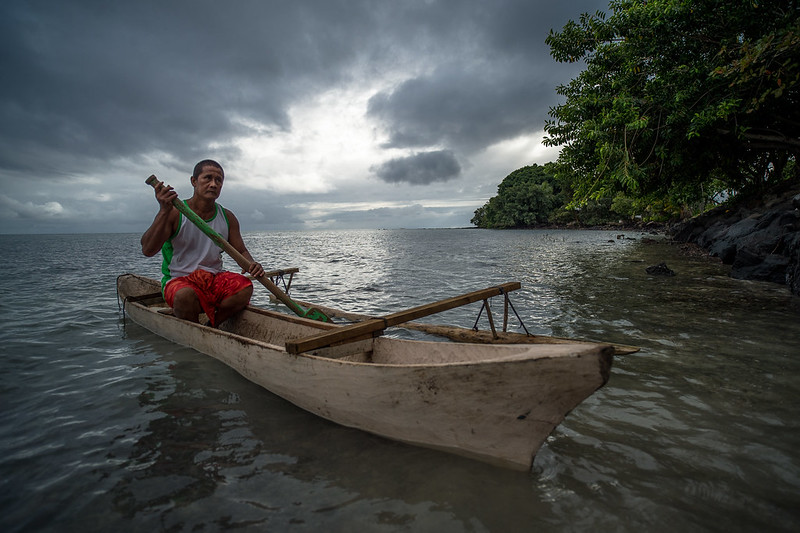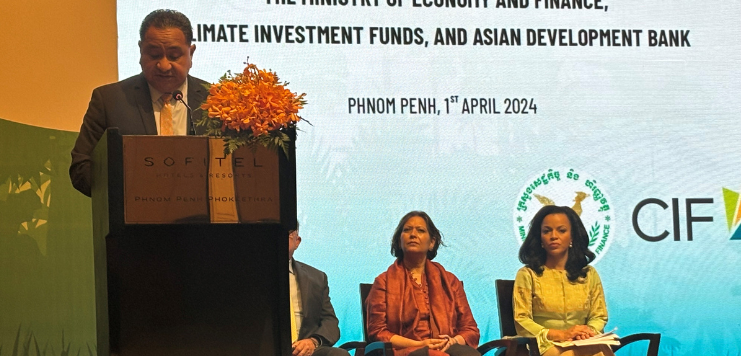We welcome your feedback
Your input matters. Help us improve the CIF website by completing a brief survey. It will only take two minutes and will support our ongoing efforts to serve you better.
No matter where in the world we live, we are all threatened by climate change. But some countries face greater challenges than others and will feel the effects more keenly. I am sharing my reflections on some of the challenges that we face and good practices that have supported us as a Pacific small island nation, in managing the greatest challenge of my generation.
Like other small island developing states (SIDS), Samoa is highly vulnerable to natural hazards. About 70 percent of our population – and our infrastructure – are in low-lying coastal areas. Tropical cyclones, flooding, and droughts are the norm.
That means we are truly on the frontlines of global warming. As sea levels rise, as extreme rainfall becomes more frequent and more intense, as droughts lengthen and the Pacific Ocean becomes more acidic, our very survival is being threatened. [The image below is courtesy of the Asian Development Bank]

Climate change is already affecting every economic sector in my country. In 2019, we experienced unusual “King Tides” – higher-than-normal annual high tides – and extreme rainfall even in our “dry” months.
And we know that this is expected to not just continue – but worsen.
It is true that there is substantial and ongoing support for island nations and developing countries. Multilateral financial institutions, such as the Climate Investment Funds (CIF), the World Bank, the Asian Development Bank (ADB), and others have already mainstreamed climate change into their development projects and programs.
But one thing has become very clear. The processes and procedures for financing critical climate resilience initiatives need to become more streamlined. Access requirements for financing should not be too stringent, or it may defeat the very purpose of such finance, particularly for nations in dire need of these resources like my country.
On behalf of all small island developing states (SIDS), I call on our development partners, including CIF, to help ensure that the processes for accessing concessional climate finance do not hinder some of the world’s most vulnerable nations from receiving it.
There are some practical ways to do this. To start with, the concessionality framework and allocation of resources should reflect the multiple and inter-connected vulnerabilities of island nations. To name just a few:
• We are more remote,
• Less connected,
• Have smaller populations, and
• Are more exposed to climate change and natural hazards.
These factors should be considered in a vulnerability index, such as the multidimensional index developed by the United Nations.
In addition, Pacific SIDS need support accessing the technical capacities and capabilities to design and put together a sound financing proposal. We also need better coordination between projects, and harmonized requirements across development partners.
There are some promising good practices. In 2009, Samoa was selected for the Pilot Program for Climate Resilience (PPCR), under CIF’s Strategic Climate Fund. This support led to a climate resilience strategy for our national road network, including hazard mapping for flooding, coastal erosion, and landslips for 100 coastal villages. Overall, more than 90,000 Samoans were helped to better cope with the adverse effects of climate change.
Because CIF works through multilateral development banks (MDBs), all the processes are streamlined. Many countries, including Samoa, already work with the MDBs and their technical experts, so there is no need to learn a new system from scratch.
Another advantage is that CIF provides opportunities for direct engagement. Samoa was previously a member of the PPCR Sub-Committee, where both contributor and pilot countries are equally represented.
And throughout the development and implementation of our programs, PPCR pilot countries were encouraged to learn from one another, sharing new ideas and lessons.
It is in this same spirit that I offer these suggestions. Let’s build on what we know works for us here in the Pacific – to do more of it, and with greater speed. Our shared future depends on it.

Minister Va'ai joined CIF and the Royal Government of Cambodia for our Asia Pacific Knowledge Exchange in Phnom Penh from April 1 to 4, 2024.
Your input matters. Help us improve the CIF website by completing a brief survey. It will only take two minutes and will support our ongoing efforts to serve you better.